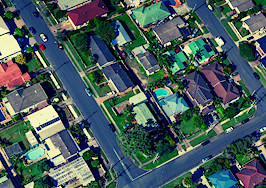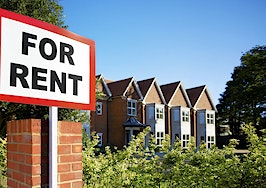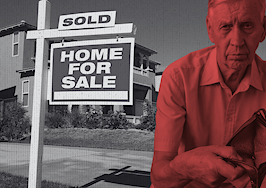It’s a great time to become a landlord. With rents continually rising (at a rate that might be unhealthy), and the continued boom of short-term rental platforms like Airbnb, it’s never been easier to find tenants. On top of that, high mortgage rates are pushing many would-be homebuyers into the rental market until rates decline.
As rosy as the financial picture might look, becoming a landlord isn’t a decision that should be made hastily. Here are seven questions to ask yourself before you sign the papers on that enticing rental property.
Do you have the time to devote to being a landlord?
One of the most common misconceptions among novice landlords is that a rental property generates passive income — that once you get a tenant in there, you can just sit back and cash the rent checks. This is not the case.
Though it’s become a cliche to say your tenants are going to call you at 4 a.m. about their clogged toilet, it’s also a simple fact. Your tenants will call you in the middle of the night (or early in the morning, or during holidays, or in the middle of your child’s birthday party) with pressing issues related to the property — and you’ll be obligated to drop whatever you’re doing and tackle those problems. The more units you own, the more emergencies you’ll have to handle.
This is a big reason why many experts recommend that novice landlords use a professional property management company. These companies do everything from putting out the proverbial fires to tenant screening and rent collection — for a price. That price is usually a percentage of your total rent collected, so make sure you’re figuring that into your projections.
Are your budget projections realistic?
Some novice investors evaluate properties by looking at average rents in the area compared to their projected mortgage payment, the logic being that if the rent they’ll take in exceeds their mortgage payment, then it’s a quality investment. But that leaves out a lot of additional expenses that can eat into your cash flow.
Landlords are usually responsible for some monthly bills like water and gas. In addition, they typically have to pay property taxes, insurance premiums, and routine maintenance. Experts suggest putting aside $1 per square foot for maintenance. So if you have a 2,000-square-foot rental property, you’ll have to pay at least $2,000 a year towards maintenance — which will probably eat up at least a month of rent, if not more.
Speaking of monthly rent, you’ll likely have months where your rental is unoccupied, and no rent is coming in. Look into local vacancy rates and plan on paying your expenses out of pocket for at least a portion of the year, while you’re looking for your next tenant.
Do you know the local laws and regulations?
Becoming a landlord isn’t as easy as simply buying a property and finding a tenant. In many places, local zoning laws or homeowners’ associations strictly forbid rentals. Research local rental laws before you buy, or you may end up with a premium property in a high-demand, high-rent area that can’t be legally rented out.
And even municipalities that don’t place any limits on where you can rent out properties may collect unique taxes on rental income or require specialized rental property inspections. The point is, evaluating a rental property isn’t just about the money — it’s also about the broader regulatory backdrop.
How are you going to find and screen tenants?
You can post a few photos and a brief description of your rental on Craigslist, and you’ll likely get a good amount of interest from prospective tenants. You could probably even get a paying tenant into your vacant rental within a week or two if you’re in a rush. That doesn’t mean it’s a good idea.
Experienced landlords know that it’s not about just getting tenants into your property — it’s about getting quality tenants who’ll pay the rent on time, respect your property, be courteous to the neighbors, and give fair notice when they want to move out. That requires the landlord (or property manager) to screen prospective tenants, which at a minimum will include credit and background checks, confirmation of income, and consulting with the tenants’ previous landlords. This can be daunting for a novice landlord, even if they’re working with a management company, or funneling everything through one of the new landlord apps.
Are you prepared for capital expenditures?
A preface to this question could be, do you know what capital expenditures are? These are big expenditures that go beyond routine maintenance — think of a new roof, replacing all the windows, or installing a new HVAC system. These expenses come up every few years and are going to be a big drain on your cash reserves.
Failure to make your capital expenditures can quickly lead to a snowball effect of unprofitability. A property that fails to meet local codes will rack up fines, and a habitable but shabby rental property will command lower rents and less reliable tenants.
Do you have legal counsel?
Even if you’re prepared to manage your rental property yourself, you’re probably going to need an experienced local lawyer who specializes in tenant-landlord issues. First, a good lawyer can make sure your leases are complete and in compliance with local laws. Giving your tenant a flawed lease can lead to serious problems down the line if you end up in court.
And you will, at some point, end up in court with a non-paying tenant. This is where having a good lawyer who’s experienced in the local tenant court can pay big dividends by making sure any needed evictions happen swiftly and properly. Many novice landlords who don’t have a lawyer simply don’t know how to handle a non-paying tenant. As a consequence, they may lose months or even years of unpaid rent as they struggle to move them out.
Why do you want to become a landlord?
Defining why you want to become a landlord will help clarify your best path forward, and highlight things to avoid.
- Do you see your rental property as a future residence or merely an investment?
- How are you going to manage the property if, say, your job forces you to move across the country?
- Do you eventually want to quit your day job to become a full-time landlord, or is this a sideline?
- Do you plan on aggressively growing your rental portfolio?
- What are the financial consequences if your rental property doesn’t bring in as much rent as you project, or ends up being vacant for an extended period?
Investing in rental properties is one of the most dependable methods of building wealth, and acting as a landlord can give an investor valuable hands-on experience. But it’s not a decision that should be made lightly. You give yourself the best chance of success when you know exactly what you’re getting into — and why.
Luke Babich is the CSO of Clever Real Estate in St. Louis. Connect with him on Facebook or Twitter.













